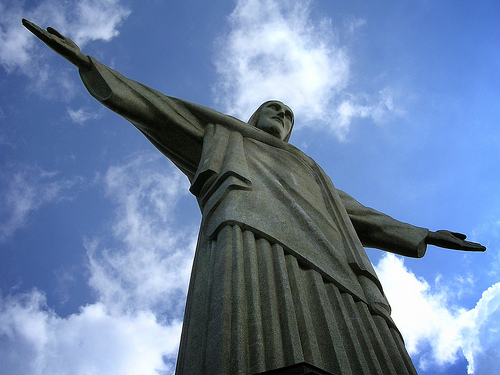Published on
Exploring The Brazilian Higher Education System
- How did the education system to get to a point where students are being falsely advanced
- What needs to be done to change this?

Firstly, before I can write anything about that matter I need to contextualize my reality, which is the Brazilian higher education system! I am not really updated with other realities such as the North American reality or European, but in some points the Brazilian case may give some light to a deeper discussion and provide a better understanding of the main trends worldwide.
The first point has to do with elementary and secondary education. Most Brazilian students come from public schools that have been under-invested throughout the years. Education in that context is viewed as a social means to “take children off the streets” instead of providing proper education to create better citizens and professionals. Many schools programs have also been passing the students as a means of providing better statistics for UNESCO. As Brazil has been increasing of both political and economical importance on the world scene, some long term problems that would take decades to solve are being disguised using this system.
But how does that impact higher education?
The Brazilian higher education system is composed of free public and paid private colleges and universities. Technical courses is a trend available but not widely accepted by both the market (companies) and public opinions (the consumers of higher education). More than 95% of higher education students study in private institutions. Why is this? Because as the last decade’s public administrations did not invest well in education as a whole, they opened the possibility of a market to private institutions to cope with the high demand. As such, the Brazilian higher education system became self-sponsored (or family-sponsored) because loans were rare up to the beginning of the 21st century.
A bachelor’s diploma is not only a means of improving career and economical life but also a possibility to enhance in social status, as undergrad education was considered an elite’s advantage up to the 1980s. On the other hand, educational laws and rules are tough for educational organizations. A student does not pay in advance, he can stop paying his installments in a current year and the school cannot stop giving him the education for that year. After that, he has the legal right to ask for his report and transfer the credits to other institution, and so on. That creates a vicious circle, treating the student as customer and creating all the possible means to maintain him in your client portfolio. In that scenario, passing the student is a rather plausible (although unethical and, I should dare, illegal) strategy.
That is the answer for the first question. The higher education system has become “market-oriented”, treating education as a commodity and dealing diplomas instead of education. What needs to be done to change this? Well, to answer the second question, I really have my doubts. A opinion of mine is nationalizing the certificate system, bringing educational attainment under the responsibility of public officials. Government could be the issuer of diplomas and the tester of minimum skills. Higher education institutions would become centers of training and development.
What’s the impact? Institutions that do not provide proper education will have failing students. Students will avoid and even sue these institutions. This idea is a embryo, of course, as many courses has more serious problems (such as Med School, Law School, Psychiatrists etc. that demand a internship training).
This second answer is more a loose idea than an integrated solution to the entire problem. My real opinion is that elementary and secondary education should be re-structured to provide better prepared students. In Brazil, more than 80% of the entire education budget goes for the public universities (which, on the other side just provide less than 4% of the Brazilian students). As a result, most public universities rank higher than all the private institutions in evaluating tests. As an example, the bottom 20% of law courses at public universities scored in average the same as the top 20% from private institutions, using Enade (a Brazilian test to finishing students from all universities). Enade is a way to measure the quality of students finishing undergrad studies and, although it can be criticized as imperfect, is a measure instead.
My conclusion of this subject is rather unhopeful. If basic education is not taken seriously and even proper technical education valued as worthwhile, more unprepared undergrads will flood the market (which is good for the companies by one side as wages decrease with higher supply of workers). The educational market should value the teacher as a knowledge disseminator instead of a lecturer of annoying classes and some control should be put in the public administration hands to enforce that social responsibility. Utopia it may be but the prognostics are not much better!
Author Perspective: Educator



